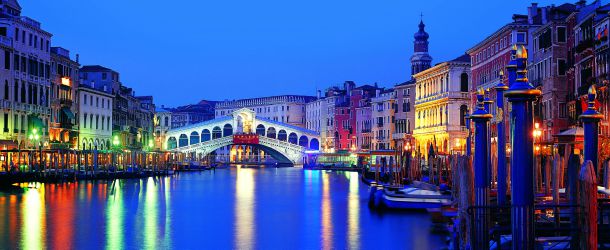If you’re a regular reader of my blogs, you may remember that some time ago, I wrote about how Venice was a step closer to a ban on cruise ships from sailing on the Grand Canal, following a bid by Italy’s Italian Environment Minister Andrea Orlando to enact emergency legislation.
Well now, according to Italian press agency ANSA, a decision has been made, as Italian governmental officials have just put an order in place to stop ships of more than 96,000 tons from crossing the Venice Lagoon. The Italian government has also put a limit on the number of smaller ships sailing in the area and has called for a reduction in the number of ships weighing over 40,000 tons.
The two-stage process begins in January 2014, when the number of cruise ships weighing 40,000 tons or more sailing in the lagoon area must be reduced by 20 per cent and will be completed in November 2014, when no cruise ships weighing more than 96,000 tons will be permitted in the lagoon.
It is expected that cruise ship traffic will be rerouted through the Contorta Sant’Angelo Canal, which lies further away from the most popular parts of the city. ANSA reported that 650 cruise ships pass through Venice each year but the new limits would reduce the number of ships of over 40,000 tons passing through the area to a maximum of five per day.
Cynthia Martinez, as spokeswoman from Royal Caribbean, whose sister brands include Celebrity Cruisesand Azamara Club Cruises, was confident of a continued Venice presence, saying: “We will not be eliminating Venice from our itineraries. We will look for alternatives so we can continue to offer the port of call to our guests.”
There have long been arguments put forward by environmentalists that large cruise ships are damaging to the ecosystem of the Venice Lagoon as well as many of the city’s iconic landmarks, such as St Mark’s Square, which lies very close to where many large cruise vessels pass by.
The ruling follows the enactment of a law in Italy last year which banned large cruise ships from passing close to Italian shores, in the wake of the Costa Concordia accident. The law was temporarily suspended in Venice until a solution could be reached, owing to the revenue that the cruise industry brings to the area.
By Simon Brotherton
Google


Comments: no replies